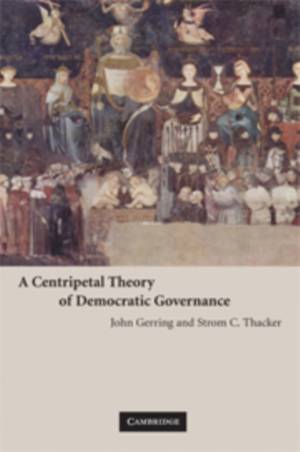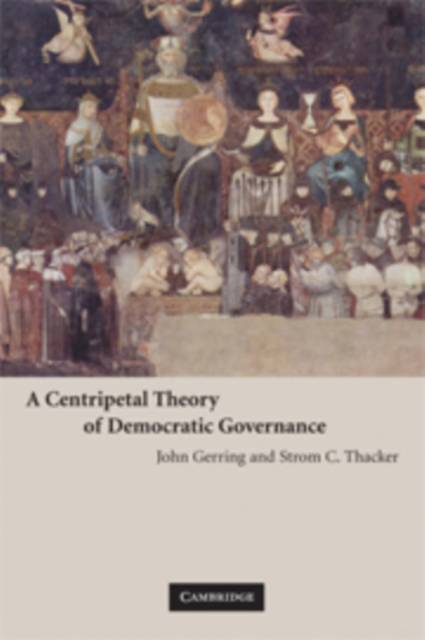
- Afhalen na 1 uur in een winkel met voorraad
- Gratis thuislevering in België vanaf € 30
- Ruim aanbod met 7 miljoen producten
- Afhalen na 1 uur in een winkel met voorraad
- Gratis thuislevering in België vanaf € 30
- Ruim aanbod met 7 miljoen producten
Zoeken
€ 96,95
+ 193 punten
Omschrijving
This book sets forth a relatively novel theory of democratic governance, applicable to all political settings in which multi-party competition obtains. Against the prevailing decentralist theory (deriving from Madison and Montesquieu), we argue that good governance arises when political energies are focused toward the center. Two elements must be reconciled in order for this process of gathering together to occur. Institutions must be inclusive and they must be authoritative. We refer to this combination of attributes as "centripetal." While the theory has many potential applications, in this book we are concerned primarily with national-level political institutions. Among these, we argue that three are of fundamental importance in securing a centripetal style of democratic governance: unitary (rather than federal) sovereignty, a parliamentary (rather than presidential) executive, and a closed-list PR electoral system (rather than a single-member district or preferential-vote system). We test the impact of these institutions across a wide range of governance outcomes.
Specificaties
Betrokkenen
- Auteur(s):
- Uitgeverij:
Inhoud
- Aantal bladzijden:
- 252
- Taal:
- Engels
Eigenschappen
- Productcode (EAN):
- 9780521883948
- Verschijningsdatum:
- 9/06/2008
- Uitvoering:
- Hardcover
- Formaat:
- Ongenaaid / garenloos gebonden
- Afmetingen:
- 155 mm x 231 mm
- Gewicht:
- 458 g

Alleen bij Standaard Boekhandel
+ 193 punten op je klantenkaart van Standaard Boekhandel
Beoordelingen
We publiceren alleen reviews die voldoen aan de voorwaarden voor reviews. Bekijk onze voorwaarden voor reviews.











